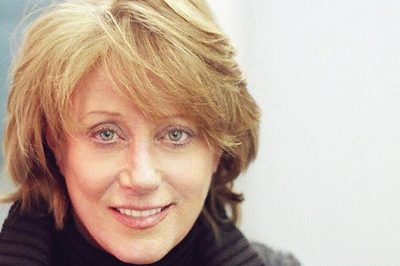Lesley Gore was a teen-pop sensation long before Miley, Taylor, Rihanna, Britney, Christina, Justin, Kelly, etc. , were born.
This was way, way, way back in the day: 1963, to be exact. This was before The Beatles broke in America, and Gore, with the help of not-yet-famous producer Quincy Jones, had a number-one smash hit with “It’s My Party.”
Don’t act like you’ve never heard the song.
As it happens for most teen-pop sensations, a string of hits, TV shows and movie roles followed, as well as the inevitable decline in popularity. Undaunted, Gore soldiered on, acting on television and performing in concerts and cabarets for the next few decades.
In 2005, she came out as a lesbian and released her first album of new material since 1976. Soon after, her work was heard on “The L Word” and “CSI: Miami.”
On a tour that will bring her to Philadelphia this week, Gore spoke to PGN about how she has kept her party going.
PGN: What can your fans expect when they see you in concert? LG: They can expect to hear the oldies they like and other songs that I like. It’s a very musical show. It’s got some modern classics and, of course, my classics.

PGN: Do you find it necessary to keep up with what’s going on in popular music? LG: It’s not really necessary for what I do and I’m not in competition with the young people who are making records today. It was young people’s field then and it’s even more so today. I do like to stay on top of it anyway. I’m familiar with Duffy and Amy Winehouse. Of course I’ve heard of the Jonas Brothers and Miley Cyrus. I’m not on top of it the same way I was in my teens and 20s, where I knew everything on the charts.
PGN: Do you think artists like the Jonas Bothers or Miley have it easier or harder than you did? LG: I think in some ways it’s a lot tougher. I think today, if my option was to try and get onto “American Idol” and create a career that way, I would not be singing now. I probably would have gone into something else.
PGN: Is there a secret to staying in the entertainment business for as long as you have? LG: You kind of have to keep reinventing yourself. For me, the trick is to change my show on a constant basis so that I don’t get tired of it. If I’m tired of it and I get on a stage, that is definitely going to come across to an audience.
PGN: Most pop artists in the 1960s had very little or no creative control when it came to their records. At what point did you start to become involved in the creative process? LG: I was very fortunate to be working with Quincy Jones, who really treated me like a musician. He never treated me like a kid or a teenager. There were times that Quincy and I disagreed about a particular song. Usually we would negotiate it out. We usually came up with a way of making both of us happy.
PGN: At the time, did you think that the songs you were recording were still going to be popular more than 40 years later? LG: No, absolutely not. I can say for sure that we never thought these songs would be played 40-some odd years later.
Gore performs at 8 p.m. March 28 at Keswick Theatre, 291 N. Keswick Ave., Glenside. For more information, call (215) 572-7650.
